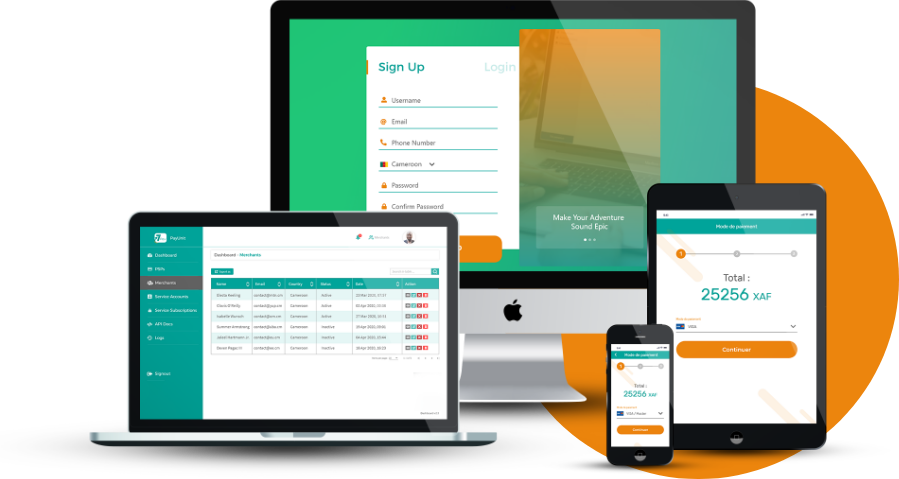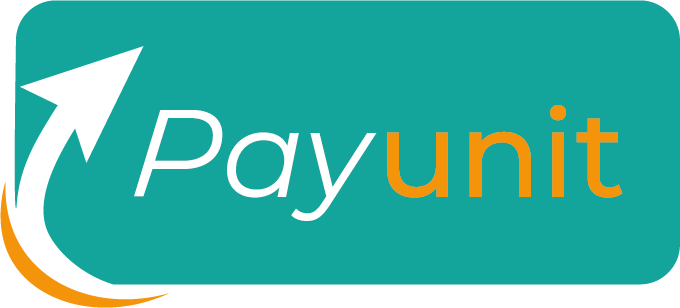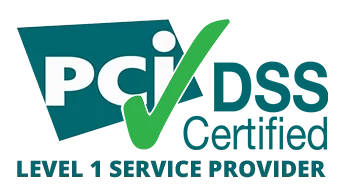Background
It took 9,500 years to reach paper money, and in less than 40 years, contemporary businesses are expected to accept invisible payments.
Nonetheless, business owners in Cameroon as elsewhere in the world must continuously adapt as technology changes the landscape of payments.
This resource breaks down payment into bits that can be digested. At the end of this resource, you’ll be able to understand how we collect and process payments on your behalf.
The Changing Landscape of Payments
The Fall of Cash and Cheques
We live in the age of speed, convenience, and minimalism. Increasingly fewer people are using cash and checks.
This change to a cashless economy has also been welcomed by governments. In 2018 for instance, BEAC took a big step to license two banks: United Bank of Africa and their partner Nexttel; Societe Generale Cameroun and their partner YUP to engage in Mobile Money activities.
Checks on their part are antiquated and outdated. The use of checks has dropped even more dramatically than cash. Not only are fewer consumers using checks, fewer merchants are accepting them due to high operational costs, additional paperwork, and NSF (non-sufficient funds) checks.
The Rise of Credit, Debit and Prepaid Cards
On average, the global preference for cards (credit, debit, and prepaid) is 54%, compared to 39% for cash.
Since credit cards are accepted at a majority of stores worldwide, consumer convenience is another reason for its increased popularity. At the end of 2013, there were over 8 billion credit, debit, and prepaid cards in circulation. For the small businessman in Cameroon selling internationally, accepting credit cards is no longer an option. It’s a necessity.
In Cameroon, the number of people with debit cards increased from 2.08% in 2011 to 11.25% in 2017.
The Unbanked and Mobile Money
According to GSMA’s Mobile Money for the Unbanked (MMU) Program, Mobile Money (MM) is a component of Mobile Financial Services which uses the mobile phone to provide remittance and payment services to the “unbanked”.
In 2019, Central Africa registered 48 million accounts with an estimated transaction value of over $30.4 billion.
Businesses in Cameroon serving CEMAC definitely need to provide customers with a means of payment through mobile money.
Fortune 500 and Mobile Wallets
In the minimalist mentality of less is more, mobile wallets have become increasingly prevalent.
Smartphones and other devices act like a contactless wallet. Users can add credit cards to mobile wallets such as Facebook Pay, Apple Pay, Samsung Pay, Android Pay, and Google Wallet to replace them with a virtual card and pay with a simple tap, via NFC (near-field communication) technology.
For businesses serving today’s customers, giving customers a means to pay through mobile wallets is important.
The Revolution: Cryptocurrency – Money of the People
Cryptocurrency is the next generation in payments: an entirely digital currency.
A cryptocurrency is a type of currency which uses digital files as money. Usually, the files are created using the same methods as cryptography (the science of hiding information).
Rather than the main networks that credit cards use, cryptocurrencies have a decentralized community of servers that are managed by individuals and businesses. This means there is no need for a middle-man, like a bank or credit agency.
Bitcoin is the first and most popular form of cryptocurrency. For the futuristic business, accepting cryptocurrency is welcomed.
Why Digital Payments Will Grow
According to Mordor Intelligence, the Digital Payments Market worldwide is expected to grow at a CAGR of 13.7% over the forecast period 2021 to 2026.
The number one reason for this growth is Convenience.
Convenience is the backbone of e-commerce and a huge reason that online shopping has boomed over the last few years.
Shopping online offers customers the convenience of purchasing items when and where it suits them, via a payment method of their choice while also having the item delivered via a method that suits them.
Secondly, mobile connections in Cameroon increased by 3.7 million (+19%) between January 2019 and January 2020.
According to Datareportal, Social media penetration in Cameroon stood at 14% in January 2020. This is another reason why collecting payment online in Cameroon is an opportunity.
Thirdly, governments around the world are encouraging digital payments.
The best examples come from India and China. We expect to see more and more governments encourage digital payments.
Finally, the biggest shift to e-commerce was brought about by COVID-19. Even after the pandemic, this trend will continue.
According to eMarketer data, e-commerce sales in 2020 are expected to grow 32.4% YoY, while brick-and-mortar is expected to decline 3.2%.
Read more on why digital payments will grow.
The Players In Digital Payments
If you’re new to online payments, understanding who is involved in the process can be overwhelming. Let’s break down the actors.
Cardholders and Mobile Money subscribers
Cardholders are your consumers with credit cards (Mastercard, VISA card) willing to purchase goods and services online. They are approved by the issuing bank (Afriland First Bank, UBA, Ecobank etc.) based on creditworthiness.
Mobile Money subscribers in Cameroon are backed by Payment Service Providers (PSPs) like MTN Mobile Money Corporation, Orange Money, Express Union Mobile Money, YUP.
Issuing Bank
The issuing bank (Afriland First Bank, UBA, Ecobank etc.) issues credit cards on behalf of payment brands. They provide consumers with credit cards, send credit card statements, and offer consumers credit. The issuer is also responsible for card security and compensates customers for losses due to fraud.
Payment Brand Networks also known as Credit Card Associations, Card Brand, or Payment Brand.
Payment brand networks are colloquially known as credit card and debit card companies. Their job is to govern compliance policies pertaining to their payment cards, monitor processing activity, develop new products, and oversee the clearing and settlement of transactions. Examples are Visa, MasterCard.
The Merchants
Merchants are small and big business owners (like you). They accept payments in exchange for goods and services.
The Payment Aggregator
Aggregators allow merchants to process payments without negotiating directly with PSPs, issuing banks, and payment brand networks.
Aggregators like PayUnit save merchants enormous time by avoiding stringent procedures and paperwork.
Visit this article to get a proper definition of Payment Aggregators, their Advantages and Disadvantages.
How much does it cost to get started?
While negotiating individually with PSPs, issuing banks and payment brand networks will cost you money, payment aggregators bring this service for free.
At PayUnit, there is no set-up cost. In other words, after signing up, you can subscribe to the different PSPs in the system and start processing transactions in a matter of minutes.
PayUnit has a flat fee per each successful transaction:
2.8% MoMo, Orange Money, Express Union Mobile Money, YUP.
5.9% Visa, Mastercard.
6.9% PayPal.
In other words, if you don’t make money, you’ll not pay us.
See 10 Distinct Benefits of Using PayUnit to Collect and Manage Payments Online in Cameroon.
Developer Options
As I mentioned above, our API is free. The challenge most merchants have is that they don’t have the skills nor time to integrate our API in their app or website. So, they hire a developer.
Because we’re developers ourselves, we know how important it is to make a developer’s job easier. We have a full documentation that breaks down every single process. See:
Watch also these tutorials:
For developers whom we’ve not yet developed a Software Development Kit (SDK) for their technologies, our REST interface is handy.
Testing, Testing, Testing
As you may already know, testing and optimization is a never ending process when it comes to software development.
With PayUnit, our sandboxing function allows developers to test, optimize, and validate our codes before they use them on your website or application.
When to Change Your Current Payment System
Symptoms don’t lie. Here are five warning signs that your payment
Fees
While many payment aggregators demand a set-up fee, others don’t. Here at PayUnit, we don’t charge a set-up fee. As mentioned earlier, we charge per transaction.
Also important are maximum volume and minimum payout.
For PayUnit, the maximum volume is … while the minimum payout is …
N.B: Remember that the lowest rate doesn’t necessarily mean the lowest overall cost. So check carefully before you’d make a final decision.
Customer Support
When it comes to online payments, customer service is even more important. This is because payment processing is a 24/7 experience.
Limited payment options
In Cameroon, your payment aggregator should permit you to accept VISA and MasterCard. This is standard for international clients. For your local clients, mobile money is a must.
The checkout process
No matter how well designed your eCommerce site is, success ultimately depends on how easily customers can purchase your products.
Ask yourself: is my payment system redirecting users to another site? I’m I collecting only relevant information from the customer? Do the forms look good on my site?
What you need to ask your payment solution partner
- Does your current payment aggregator require a setup fee?
- How much are they charging you per transaction?
- What is the maximum volume of transactions per month?
- What is the minimum payout?
- Do they have software development kits that will save your developers time?
- Are there available documentations and tutorials?
- Does it take days or weeks to resolve a problem with support?
- Are you giving your customers the standard means of payment through your aggregator?
- Are you able to receive recurring payments?
- Does your payment system offer multi-currency support?
- What is their PCI compliance level?
Read More About the 5 Warning Signs Your Online Payment System Is Failing You
Start collecting payments from your customers online today
No Setup fees.
Most competitive rates in the market.










